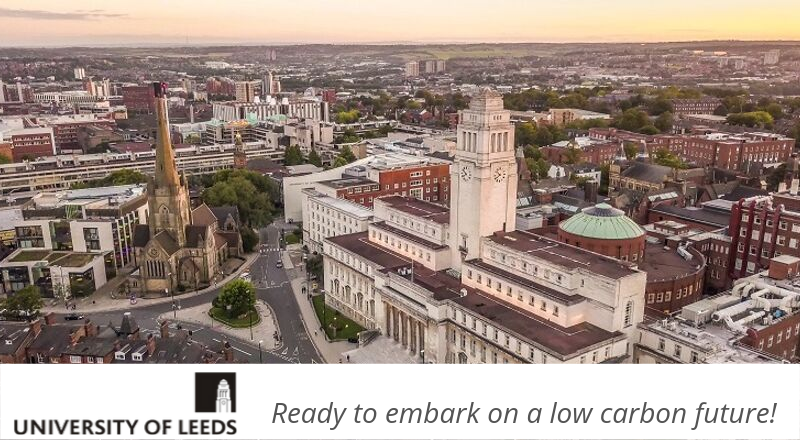The University of Leeds has fully divested from significant fossil fuel extractors and has set out seven bold principles it will adopt to help tackle the climate crisis.
The University of Leeds has fully divested from significant fossil fuel extractors and has set out seven bold principles it will adopt to help tackle the climate crisis.
The principles have been approved by the University’s governing body, its Council, and outline the ambitious steps the University is taking to support the global transition to a low carbon future.
They commit to a 2030 net-zero carbon footprint target and a drive to achieve no direct carbon emissions by 2050.
They also include a commitment to reorient research and teaching away from the fossil fuel sector over time. This complements the Climate Active Strategy adopted last year to guide University investment.
As a result of this Climate Active Strategy, the University has withdrawn investment from significant fossil fuel extractors Total, BP and, most recently, Shell (Royal Dutch Shell).
Having done so, the University’s exposure to fossil fuel extraction is now minimal, with the limited investment in this sector now focused on supporting companies who are evidently making the transition to alternative energy sources and a low-carbon economy.
The Climate Active Strategy will continue to guide the University’s determined approach to responsible investment.
Sir Alan Langlands, Vice-Chancellor of the University of Leeds, said: “Climate change is the most demanding global challenge we all face.
“The University has a proud academic record as a leader in the field of climate research and a strong commitment to sustainability on campus and in the wider community we serve. We are committed to leading by example in the fight against climate change. Today, we set out seven principles which will guide our actions in the coming years.
“In doing so we acknowledge it will take time, effort, determination and sheer hard work to achieve a low carbon future. It will require difficult decisions and sometimes pragmatic compromise, alongside action that has direct impact.
“Our overriding aim is to not only to make this transition ourselves, but to harness our expertise to support others, and we will mobilise the University’s combined knowledge, influence, assets and community to tackle this global challenge.”
The recent Intergovernmental Panel on Climate Change (IPCC) report, which included significant input from University of Leeds researchers, warned that humanity has 12 years to take action in order to prevent global warming greater than 1.5°C.
Find out more here.
ENDS
The principles have been approved by the University’s governing body, its Council, and outline the ambitious steps the University is taking to support the global transition to a low carbon future.
They commit to a 2030 net-zero carbon footprint target and a drive to achieve no direct carbon emissions by 2050.
They also include a commitment to reorient research and teaching away from the fossil fuel sector over time. This complements the Climate Active Strategy adopted last year to guide University investment.
As a result of this Climate Active Strategy, the University has withdrawn investment from significant fossil fuel extractors Total, BP and, most recently, Shell (Royal Dutch Shell).
Having done so, the University’s exposure to fossil fuel extraction is now minimal, with the limited investment in this sector now focused on supporting companies who are evidently making the transition to alternative energy sources and a low-carbon economy.
The Climate Active Strategy will continue to guide the University’s determined approach to responsible investment.
Sir Alan Langlands, Vice-Chancellor of the University of Leeds, said: “Climate change is the most demanding global challenge we all face.
“The University has a proud academic record as a leader in the field of climate research and a strong commitment to sustainability on campus and in the wider community we serve. We are committed to leading by example in the fight against climate change. Today, we set out seven principles which will guide our actions in the coming years.
“In doing so we acknowledge it will take time, effort, determination and sheer hard work to achieve a low carbon future. It will require difficult decisions and sometimes pragmatic compromise, alongside action that has direct impact.
“Our overriding aim is to not only to make this transition ourselves, but to harness our expertise to support others, and we will mobilise the University’s combined knowledge, influence, assets and community to tackle this global challenge.”
The recent Intergovernmental Panel on Climate Change (IPCC) report, which included significant input from University of Leeds researchers, warned that humanity has 12 years to take action in order to prevent global warming greater than 1.5°C.
Find out more here.
ENDS











